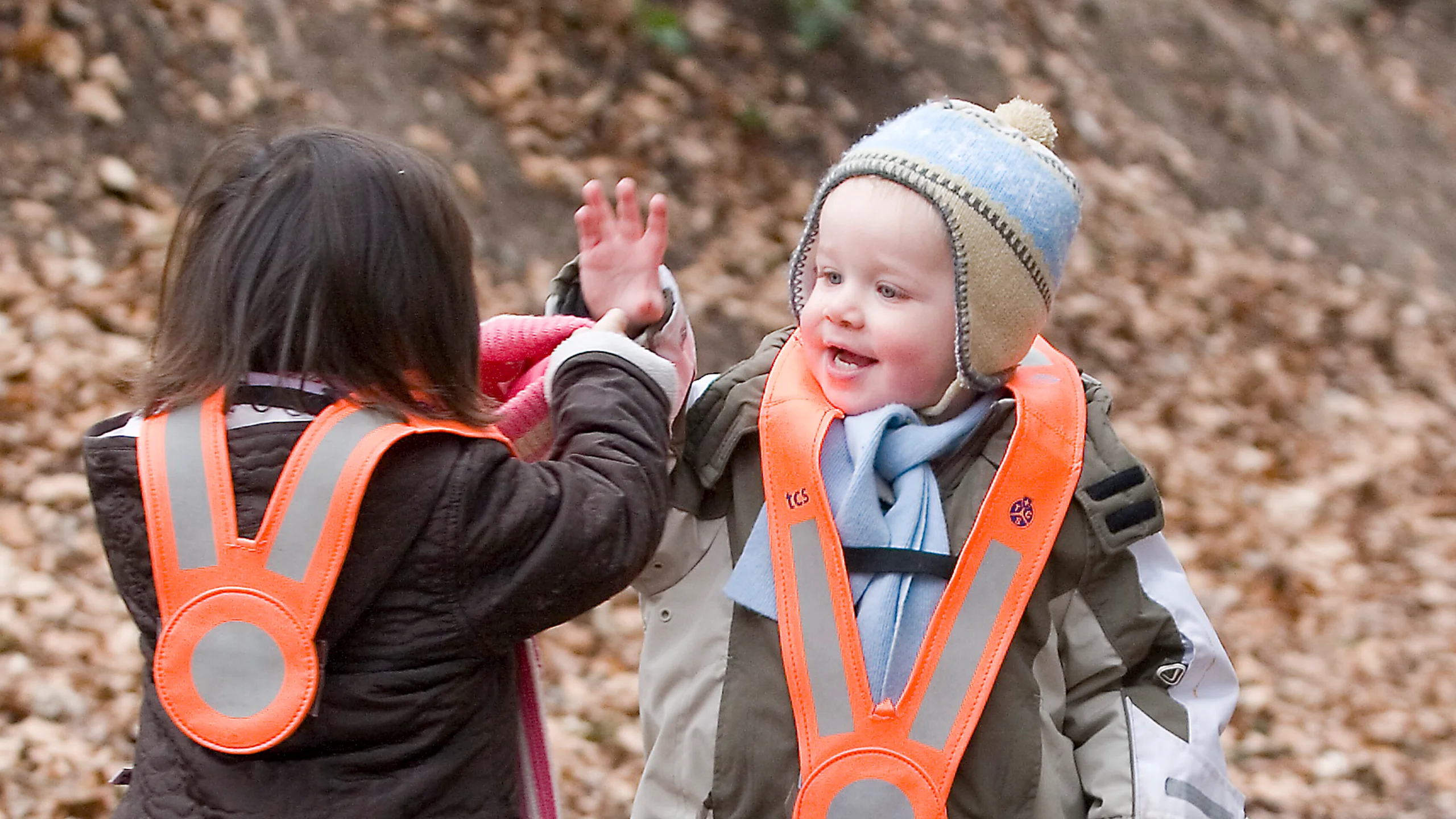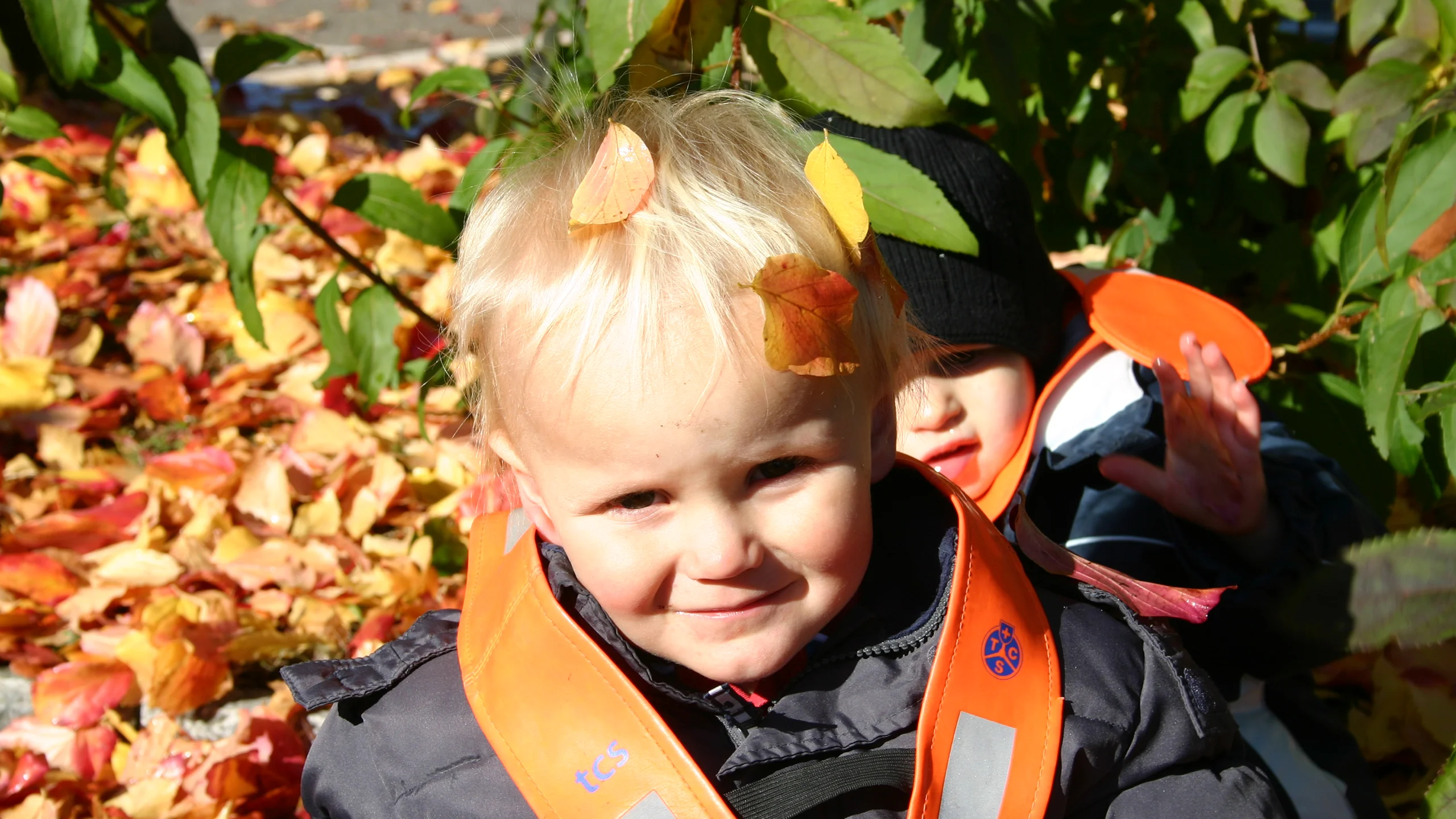Toddlers
Learning Playfully
“Very young children can already tell if one group of objects is more or less than another group.”
Meyer, Wardrop & Hastings (1992) in K.C. Trundle (2013)
“Very young children can already tell if one group of objects is more or less than another group.”
Meyer, Wardrop & Hastings (1992) in K.C. Trundle (2013)
The educators of Little Star Day School understand the needs of toddlers. Now that they can walk and their motor skills are quite well develloped, the two-year-olds are becoming more mobile and the time has come when they make big steps in langauge development. They explore their world intensively and learn with all their senses.
Our educators are experienced and know how to guide and support this development. Here, too, we work closely with the parents to joinly recognize the needs of the child and to meet them.
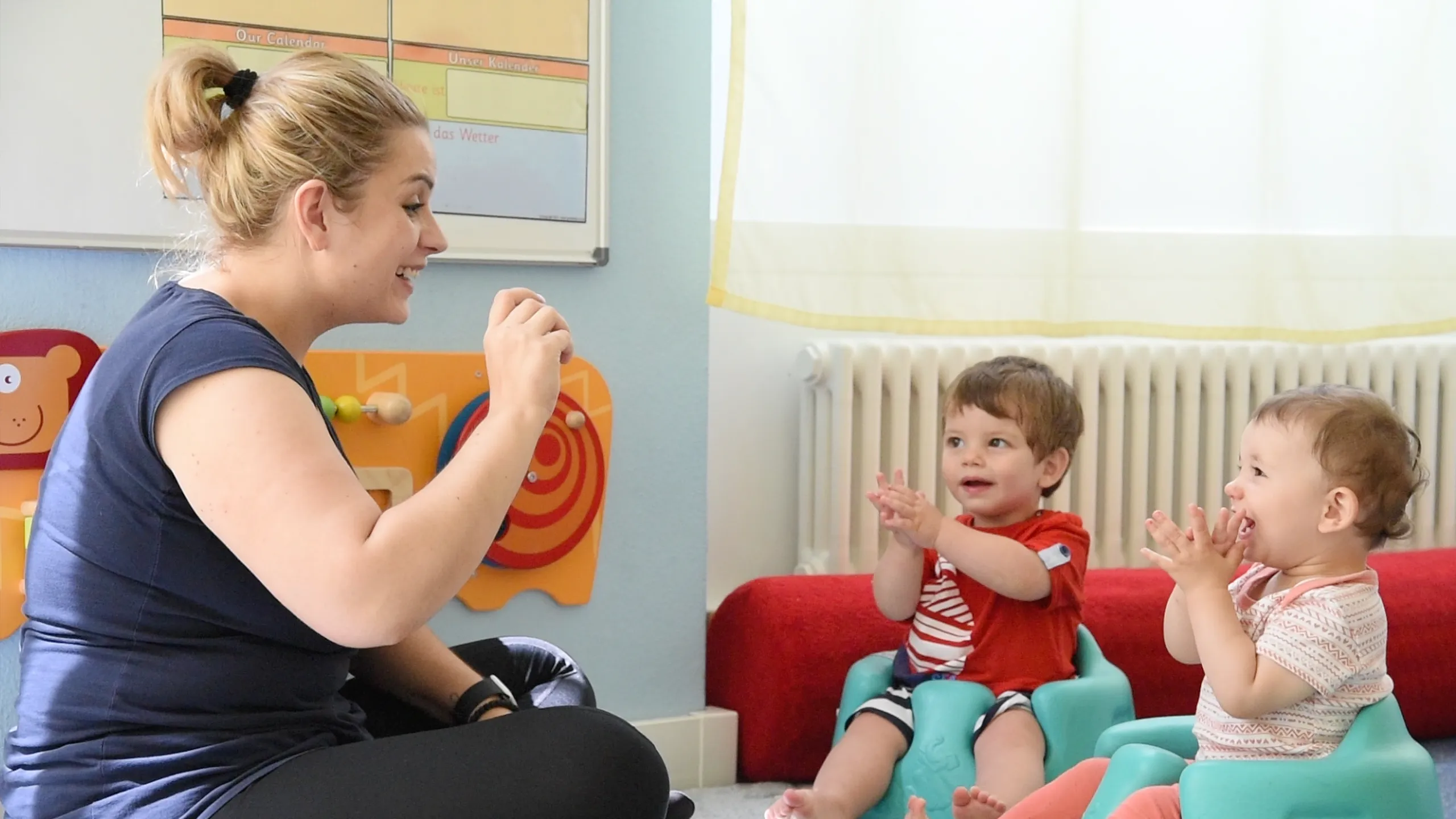
2 Years of Age – Transition
The period around the second birthday heralds a transitional phase. While the child’s development has focused on motor and sensory aspects so far, the social aspect now plays an increasingly important role. The two-year-old continues to develop communication skills, increasingly pursues their own goals and wants to be perceived as an individual. At the same time, motor skills and their control develop suddenly.
3 Years of Age – Independence
The third year of life reflects the child’s unlimited curiosity, boundless energy, and desire for independence in everyday life. Your child is now able to move independently, with no idea of their impact on the surrounding world. Our experienced childcare professionals will help your child build their skills and channel their energy.
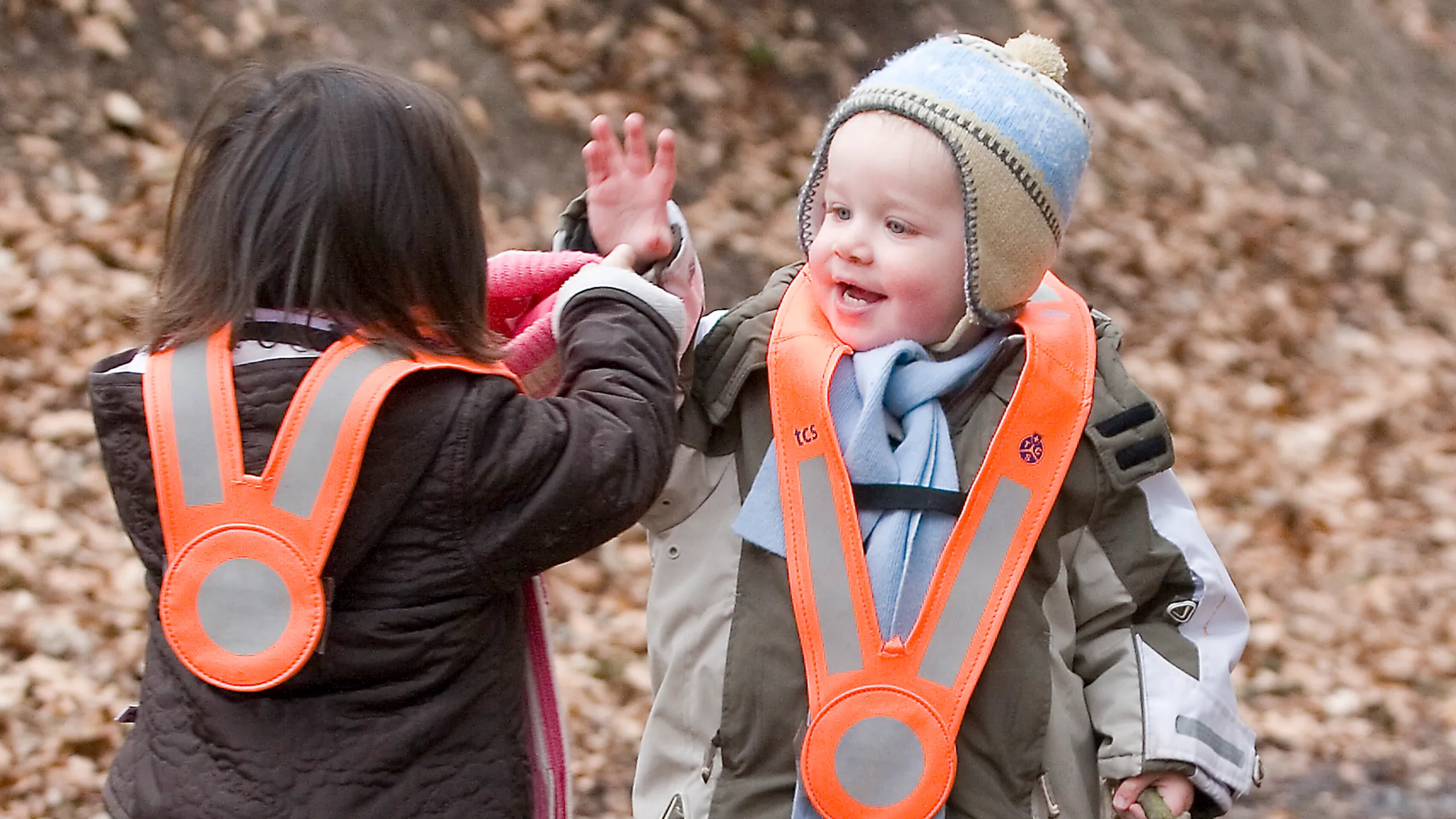
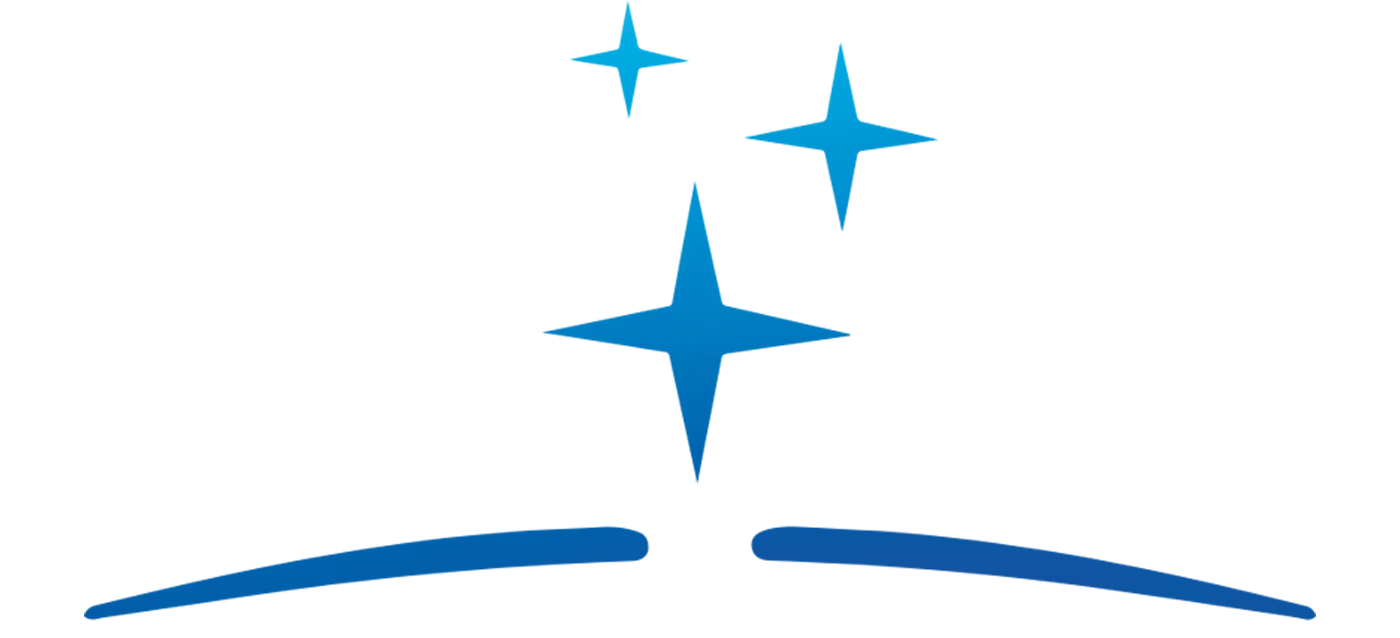
Early Years Curriculum ™
Targeted Support for 2 and 3 Year-olds
- Creativity & Music: Movement songs are a recurring part of the daily routine – be it during group time or during transitions between activities. Your child is given the opportunity to express themself through creative activities: music or handicrafts/painting.
- Body & Wellbeing: Through walking and running, two-year-olds gain control of small and large muscles, refine their movements, and find their very own ways to.
- Language and Early Literature: Cognitive progress and controlled motor skills make way for very interesting conversations that we enjoy and encourage as toddlers express their thoughts and needs.
- Early Mathematics & Sciences: Our educators intentionally introduce numbers, shapes and colors into everyday life to provide an early foundation for science and math.
- Social & Emotional Skills: Independence is evident at this age as two-year-olds choose their friends and enjoy pleasing adults. Positive reinforcement promotes good behavior and creates enjoyable learning experiences.
- Cognition: Cognitive progress in young children is based less on trial and error and more on more deliberate action, as well as a longer attention span and a preference for certain people, places, and things.
Outdoor activities and a balanced nutrition are also important parts of our Early Years Curriculum EYC®. The individual program for each child is adapted to their progress, needs and age so that each child develops optimally.
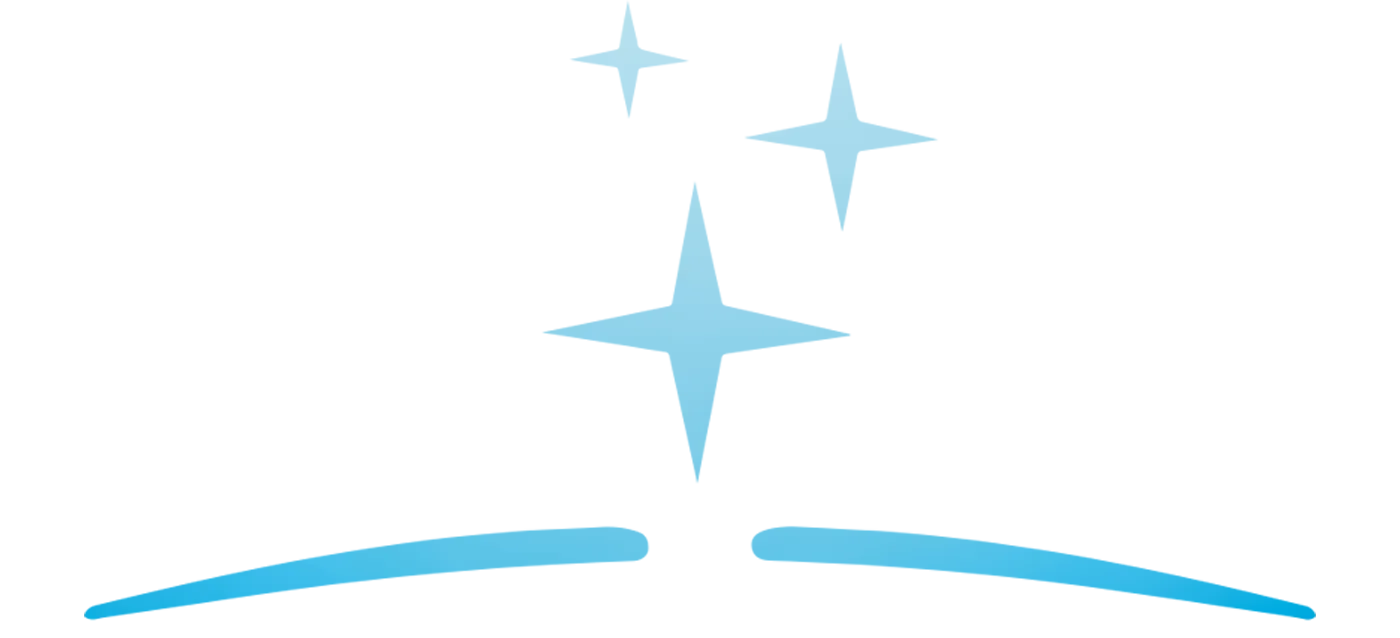
Early Years Curriculum ©
Gezielte Förderung für
2- und 3-Jährige
Creativity & Music
Movement songs are a recurring part of the daily routine. Be it during group time or during transitions between activities. The child is given the opportunity to express himself through creativity – music or handicrafts/painting.
Body & Wellbeing
Through walking and running, two-year-olds gain control of small and large muscles, refine their movements, and find their very own ways to.
Language and Early Literature
Cognitive progress and controlled motor skills make way for very interesting conversations that we enjoy and encourage as toddlers express their thoughts and needs.
Early Mathematics & Sciences
Our educators intentionally introduce numbers, shapes and colors into everyday life to provide an early foundation for science and math.
Social & Emotional Skills
Independence is evident at this age as two-year-olds choose their friends and enjoy pleasing adults. Positive reinforcement promotes good behavior and creates enjoyable learning experiences.
Cognition
Cognitive progress in young children is based less on trial and error and more on more deliberate action, as well as a longer attention span and a preference for certain people, places, and things.
Outdoor activities and a balanced nutrition are also important parts of our Early Years Curriculum EYC®. The individual program for each child is adapted to their progress, needs and age so that each child develops optimally.
